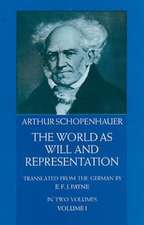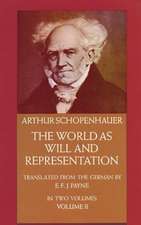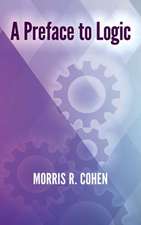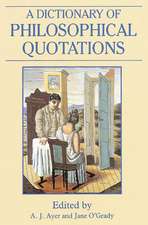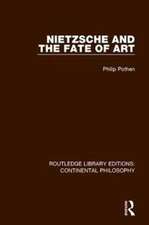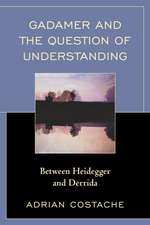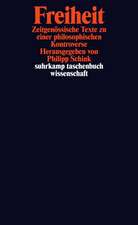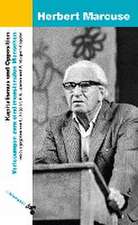Language, Truth and Logic: Dover Books on Western Philosophy
Autor A. J. Ayer, Alfred Jules Ayeren Limba Engleză Paperback – 31 mai 1952
"A delightful book I should like to have written it myself." Bertrand Russell
First published in 1936, this first full-length presentation in English of the Logical Positivism of Carnap, Neurath, and others has gone through many printings to become a classic of thought and communication. It not only surveys one of the most important areas of modern thought; it also shows the confusion that arises from imperfect understanding of the uses of language. A first-rate antidote for fuzzy thought and muddled writing, this remarkable book has helped philosophers, writers, speakers, teachers, students, and general readers alike.
Mr. Ayers sets up specific tests by which you can easily evaluate statements of ideas. You will also learn how to distinguish ideas that cannot be verified by experience those expressing religious, moral, or aesthetic experience, those expounding theological or metaphysical doctrine, and those dealing with a "priori" truth. The basic thesis of this work is that philosophy should not squander its energies upon the unknowable, but should perform its proper function in criticism and analysis.
"
Din seria Dover Books on Western Philosophy
-
 Preț: 110.32 lei
Preț: 110.32 lei -
 Preț: 75.88 lei
Preț: 75.88 lei -
 Preț: 39.17 lei
Preț: 39.17 lei -
 Preț: 72.56 lei
Preț: 72.56 lei -
 Preț: 48.65 lei
Preț: 48.65 lei -
 Preț: 55.88 lei
Preț: 55.88 lei -
 Preț: 52.36 lei
Preț: 52.36 lei -
 Preț: 93.40 lei
Preț: 93.40 lei -
 Preț: 52.55 lei
Preț: 52.55 lei -
 Preț: 28.44 lei
Preț: 28.44 lei -
 Preț: 54.19 lei
Preț: 54.19 lei -
 Preț: 81.23 lei
Preț: 81.23 lei - 22%
 Preț: 34.47 lei
Preț: 34.47 lei -
 Preț: 48.65 lei
Preț: 48.65 lei -
 Preț: 41.17 lei
Preț: 41.17 lei
Preț: 55.25 lei
Nou
10.57€ • 11.07$ • 8.77£
Carte disponibilă
Livrare economică 19 martie-02 aprilie
Specificații
ISBN-10: 0486200108
Pagini: 160
Dimensiuni: 136 x 201 x 9 mm
Greutate: 0.18 kg
Ediția:Reprint
Editura: Dover Publications
Seria Dover Books on Western Philosophy
Textul de pe ultima copertă
"A delightful book I should like to have written it myself." Bertrand Russell
First published in 1936, this first full-length presentation in English of the Logical Positivism of Carnap, Neurath, and others has gone through many printings to become a classic of thought and communication. It not only surveys one of the most important areas of modern thought; it also shows the confusion that arises from imperfect understanding of the uses of language. A first-rate antidote for fuzzy thought and muddled writing, this remarkable book has helped philosophers, writers, speakers, teachers, students, and general readers alike.
Mr. Ayers sets up specific tests by which you can easily evaluate statements of ideas. You will also learn how to distinguish ideas that cannot be verified by experience those expressing religious, moral, or aesthetic experience, those expounding theological or metaphysical doctrine, and those dealing with a "priori" truth. The basic thesis of this work is that philosophy should not squander its energies upon the unknowable, but should perform its proper function in criticism and analysis."
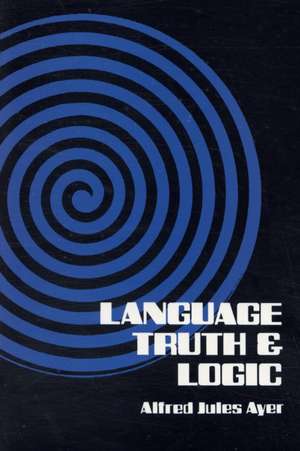
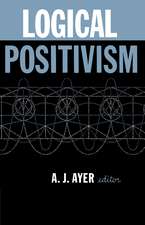

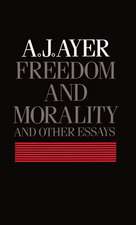



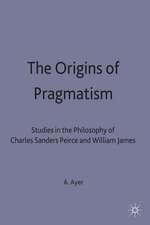
![British Empirical Philosophers (Routledge Revivals): Locke, Berkeley, Hume, Reid and J. S. Mill. [An anthology]](https://i4.books-express.ro/bt/9780415537742/british-empirical-philosophers-routledge-revivals.jpg)

